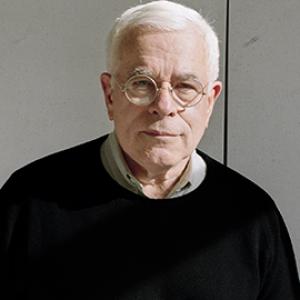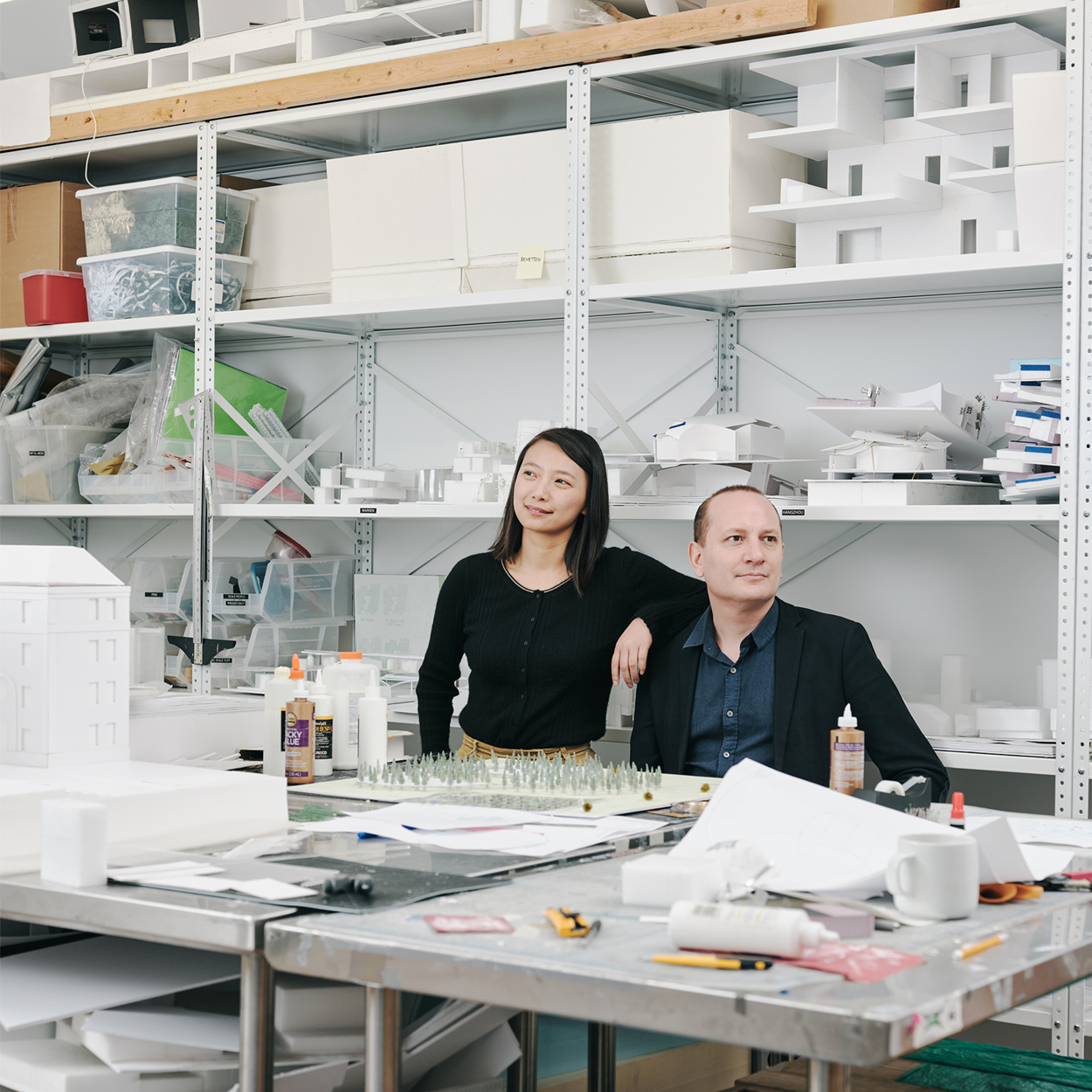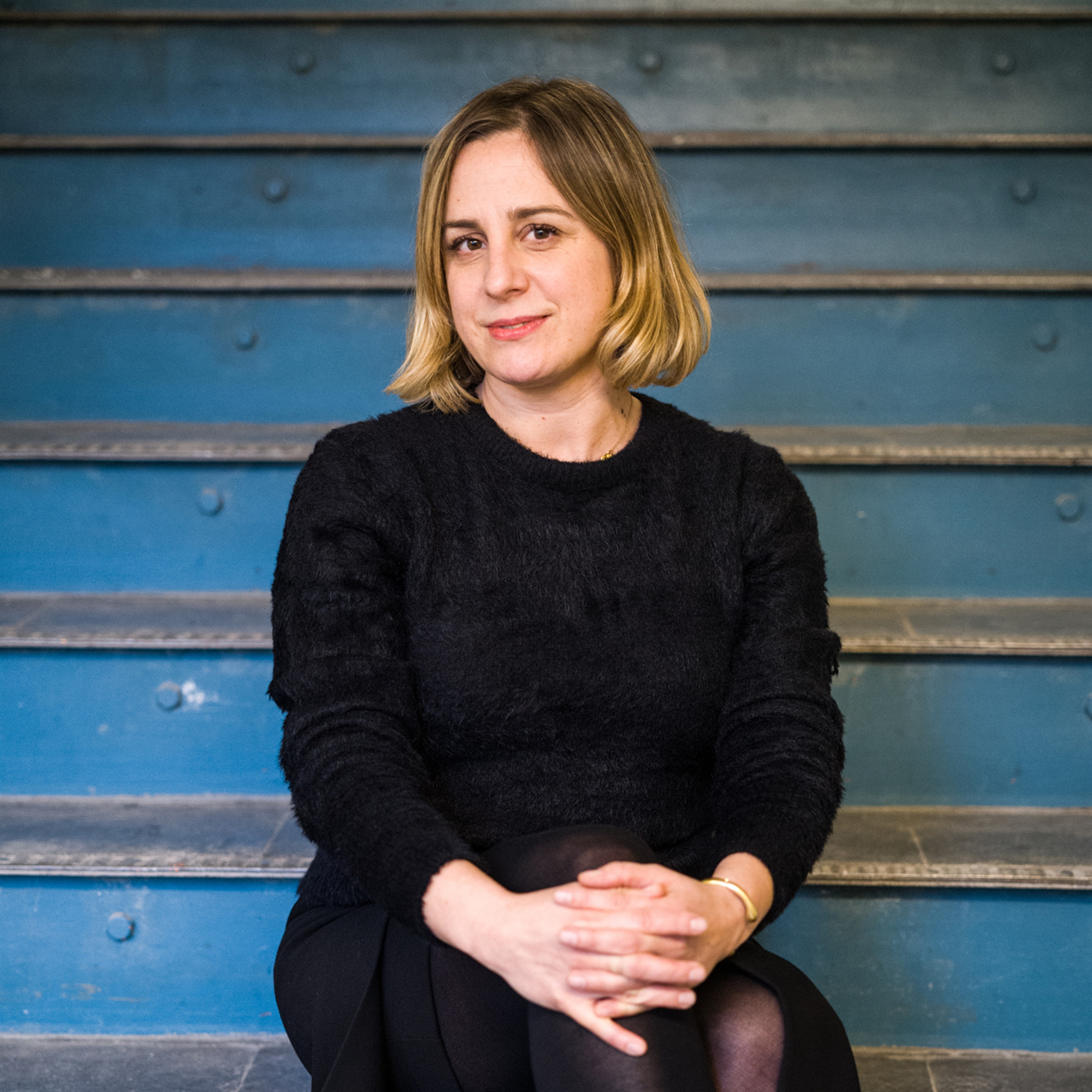Cornell AAP NYC Fall Lecture Series 2023
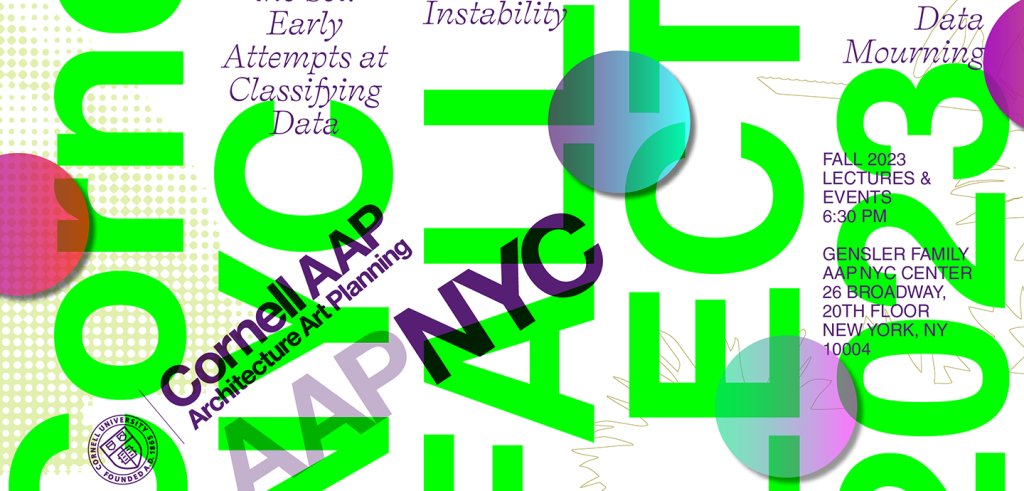
image / provided
Overview
Overview
Design can be understood as "giving form to things to come." One enters a design trajectory to work towards a set of desired outcomes. In the past, the service of design, as an enterprise, was a viable business. Yet, in times that seem increasingly chaotic, unpredictable, unstable, and uncertain, how and why does one set up a practice? This lecture series asks six architects and designers who recently ventured on their own: How do you do it and why?
The format is simple, 25 minutes of presentation and 25 minutes of conversation at the Gensler Family AAP NYC Center.
October 3: Rosetta S. Elkin
Abstract:
Landscapes of Retreat are portraits of climate adaptation. Retreat is found in the land that is left behind as settlement patterns shift due to a changing climate. The term landscape refers to the earth animated by the aliveness of creatures and organisms, and the term retreat suggests that human patterns are not fixed but might also be enlivened. Featuring in-depth field studies from Nijinomatsubara Forest, Japan; Maule River, Chile; Niugtaq Village, Alaska; Langtang Park, Nepal; and Gaspésie Peninsula, Québec; the stories in Landscapes of Retreat suggest that communities are more likely to adapt to change when the landscape is appreciated, so that retreat can be valued. The results cut across history, fieldwork, citizenship, and geography in order to rethink and rework "change" as a means toward shared climate futures.
October 3, 2023, 6:30 p.m.
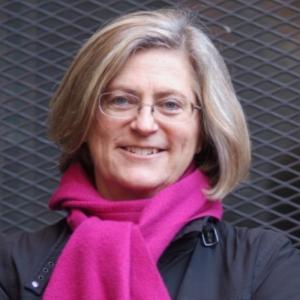
Cynthia Davidson
Cynthia Davidson is cofounder and executive director of the nonprofit Anyone Corporation, an architecture think tank in New York City. She is the editor of the international architecture journal Log, which she launched in 2003, and previously ANY magazine, an architecture theory tabloid (1993–2000). She is also responsible for more than 40 books in print, including 28 books in the Anyone project's Writing Architecture series, published with MIT Press. She cocurated The Architectural Imagination, an exhibition of speculative projects for Detroit, which was first shown in the US Pavilion at the 2016 Venice Architecture Biennale, and she started the pop-up architecture gallery Anyspace in New York in 2017. Davidson is currently visiting faculty at Princeton University School of Architecture and Cornell University's College of Architecture, Art, and Planning program in New York City. The American Academy of Arts and Letters recognized her work with its Architecture Award in 2014.
October 17: Tung-Hui Hu
Abstract:
Today's digital supply chain relies heavily on logistical technologies that coordinate bodies alongside their algorithms or warehouse robots. Digital algorithms turn human workers—pickers, micro workers, content moderators—into abstract objects that circulate, into labor power that can be summoned on demand, like the cloud. The true objects of logistics are human, and those are disproportionately persons of color. As of 2022, 74 percent of Amazon's front-line warehouse and call center workers, for example, were nonwhite. But when one's job is to be a robotic "server" for others, what forms of collectivity and political agency are left?
Digital Lethargy thinks alongside visual art, performance, and literature to describe the atmospheres of exhaustion that result from digital capitalism. This is an exhaustion not just from being overworked but from needing to continually speak up, to be lively, and to be "yourself." The depersonalization, busy idleness, and burnout that results from this demand is what I call lethargy, after the ancient illness of listlessness and self-forgetting. But if digital algorithms turn us into objects, perhaps it is better to start from that position; being more "human," after all, is the logic that has historically fueled racial capitalism. Rather than a state of passivity, then, lethargy describes a state of potential. Rather than an illness to be cured, it suggests a way of enduring the broken world.
October 17, 2023, 6:30 p.m.
Peter Eisenman
Founder and Principal, Eisenman Architects; Visiting Critic, Cornell AAP
Cynthia Davidson is cofounder and executive director of the nonprofit Anyone Corporation, an architecture think tank in New York City. She is the editor of the international architecture journal Log, which she launched in 2003, and previously ANY magazine, an architecture theory tabloid (1993–2000). She is also responsible for more than 40 books in print, including 28 books in the Anyone project's Writing Architecture series, published with MIT Press. She cocurated The Architectural Imagination, an exhibition of speculative projects for Detroit, which was first shown in the US Pavilion at the 2016 Venice Architecture Biennale, and she started the pop-up architecture gallery Anyspace in New York in 2017. Davidson is currently visiting faculty at Princeton University School of Architecture and Cornell University's College of Architecture, Art, and Planning program in New York City. The American Academy of Arts and Letters recognized her work with its Architecture Award in 2014.
October 24: Lyndon Neri and Rossana Hu
Abstract:
'Jian', the Chinese abstract word for in between, time and space. As we imagine for ourselves what the future holds, we collectively occupy the liminal space or "jian" of experimentation both in theoretical constructs and in design practice. Derived from the Latin word limen, which means 'threshold', liminality is a term used by cultural theorists, anthropologists, and psychologists to describe spaces located in between locations of cultural action. The lecture will show a few of the studio's work by exploring boundaries in culture as a place of liminality or "third space" as coined by Homi Bhabha where translations and negotiations occur.
October 24, 2023, 6:30 p.m.
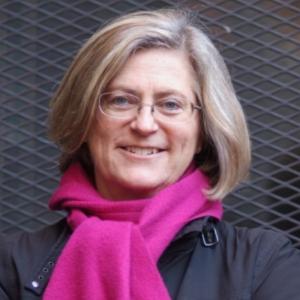
Cynthia Davidson
Cynthia Davidson is cofounder and executive director of the nonprofit Anyone Corporation, an architecture think tank in New York City. She is the editor of the international architecture journal Log, which she launched in 2003, and previously ANY magazine, an architecture theory tabloid (1993–2000). She is also responsible for more than 40 books in print, including 28 books in the Anyone project's Writing Architecture series, published with MIT Press. She cocurated The Architectural Imagination, an exhibition of speculative projects for Detroit, which was first shown in the US Pavilion at the 2016 Venice Architecture Biennale, and she started the pop-up architecture gallery Anyspace in New York in 2017. Davidson is currently visiting faculty at Princeton University School of Architecture and Cornell University's College of Architecture, Art, and Planning program in New York City. The American Academy of Arts and Letters recognized her work with its Architecture Award in 2014.
November 7: Jay Cephas
Abstract:
From an ecological perspective, the edge is a space of transition, an encounter wherein diverse conditions align, overlap, or are juxtaposed. Fluctuating urban coastal edges reveal littoral landscapes as both material joints between land and water and as social joints between marginal populations and mainstream land policies. Tracing the historical constitution of coastal edges through landmaking practices—that is, the recovery of solid ground from water—reveals how such landscape transformation has served as both a practical tool of urbanization as well as a discursive tool for articulating the changing relationships between urban geographies, land-forming technologies, and the modes of labor necessary for spatial change.
November 7, 2023, 6:30 p.m.
Jay Cephas
Assistant Professor of Architecture, Princeton University; Director, Studio Plat
Jay Cephas is an historian of architecture, landscapes, and cities whose research investigates the relationships between technology, subjectivity, and spatial practices. Cephas analyzes both ordinary and critical spatial practices to recover the latent and as of yet invisible knowledges that are transmitted through the bodies and buildings of urban environments. In Fordism and the City, Cephas deploys these frameworks to examine the agonism structuring of Fordism and urbanization in early twentieth-century Detroit. A newer research project turns to New York City to address the knowledge transfer occurring between visionary architects and labor activists in their efforts to create cooperative housing.
Cephas is the founding director of Studio Plat, a Boston-based geospatial research and development practice that examines the past, present, and future of cities. Using qualitative and human-centered research methods, Studio Plat develops products and systems to maximize social impact design and planning while helping mission-driven organizations build greater capacity through their work in community engagement, social justice, and equitable design. Studio Plat serves these organizations by designing participatory planning and community engagement processes, conducting organizational assessments, developing strategic plans, and interpreting urban research through data analysis and visualization; Studio Plat directly serves the larger urban community by performing neighborhood assessments, advising community organizations on issues such as gentrification and redevelopment, and making urban research data publicly accessible. As such, Studio Plat aims to help make social impact urbanism a normative component of urban development.
Cephas is currently an Assistant Professor in the History and Theory of Architecture at Princeton University. He previously taught at Harvard University, University of Michigan, Cranbrook Academy of Art, Northeastern University, and University of Detroit Mercy. Cephas holds a Ph.D. in History and Theory of Architecture and Urbanism from Harvard University and an M.Arch. from the University of Detroit Mercy. Additionally, he was a 2019 W.E.B. Du Bois Fellow at the University of Massachusetts Amherst and has served on the Editorial Board of the Journal of Architectural Education, as the Editorial Director for Positions: On Modern Architecture + Urbanism / Histories + Theories, the Editor-in-Chief of Crit, and was a Design + Research Fellow at the Detroit Collaborative Design Center, where he managed building projects for low-income communities.
November 14: Florian Idenburg and Jing liu
Abstract:
Through the lecture 'In Real Life', Idenburg and Liu will highlight a number of recently completed projects as well as projects currently in development in the office.
November 14, 2023, 6:30 pm.
Florian Idenburg and Jing liu
RA, AIA-IA, Professor of Practice at Cornell University
Florian Idenburg is an internationally renowned Dutch architect with over two decades of professional experience. After learning the ropes in Amsterdam and Tokyo, he founded SO – IL in 2008 together with Jing Liu. His years of working in cross-cultural settings make Florian a thoughtful and collaborative partner. With a joyous demeanor, he pursues innovation through working together. He has a particularly strong background in institutional spaces, leading the office on projects such as the Kukje Gallery and the Manetti Shrem Museum of Art at UC Davis as well as Amant in Brooklyn. His strength lies in generating imaginative ideas and transforming those into real-world spaces and objects.
Idenburg has a strong intuition for the orchestration of form, material, and light, and enjoys developing projects to a level where those elements become places for people to experience and use. He combines a hands-on approach with a theoretical drive, sharing this creative spirit with clients, collaborators, and students. A frequent speaker at institutions around the world, he has taught at Harvard, MIT, Columbia, and Princeton University and is currently a Professor of the Practice at Cornell University. In 2010, Idenburg received the Charlotte Köhler Prize from the Prince Bernhard Culture Fund. He is a registered architect in the Netherlands and an International Associate of the American Institute of RA, AIA-IAArchitects.
Jing Liu has been practicing for more than 15 years working on a wide range of projects both in the U.S. and abroad. Through building practice and interdisciplinary research projects, Liu has led SO – IL in the engagement with the socio-political issues of contemporary cities — in projects like the Artists Loft North Omaha and the Martin Luther King, Jr. Library in Cleveland. Her projects range from artistic collaborations with contemporary choreographers and visual artists to master plan and major public realm design in cities like Melbourne and Indianapolis.
Liu leads all of her projects from concept to realization and considers carefully all aspects of design and construction — from the building's presence in a community, down to the fasteners in a window. She believes strongly that design should and can be accessible to all, and that architecture offers us an open platform to nurture new forms of interaction. To that end, Liu sees community engagement and collaboration across disciplines as central to her role as the design lead.
November 28: Marina Otero
Abstract:
'Data Mourning' analyzes data storing architectures from a metabolic perspective and through processes of proliferation and decay. The project acknowledges the intricate relationship between information systems and the environment emphasizing the materiality of digital data and the resources and sheer computational energy required to store and preserve it.
28th November, 2023, 6:30 pm
Marina Otero
Columbia University GSAPP, Dean's Visiting Assistant Professor
Dr. Marina Otero Verzier is an architect and researcher. In 2022 she received Harvard's Wheelwright Prize for a project on the future of data storage. Her winning proposal Future Storage: Architectures to Host the Metaverse examines new architecture paradigms for storing data and how reimagining digital infrastructures could meet the unprecedented demands facing the world today.
Since 2020 Otero has been the Head of the MA Social Design Masters at Design Academy Eindhoven. The program focuses on design practices attuned to ecological and social challenges. From 2015 to 2022, she was the Director of Research at Het Nieuwe Instituut, where she led initiatives focused on labor, extraction, and mental health from an architectural and post-anthropocentric perspective, including "Automated Landscapes," "BURN-OUT, " and “Lithium: States of Exhaustion.” Previously, she was Director of Global Network Programming at Studio-X, Columbia GSAPP.
Otero has curated exhibitions such as 'Compulsive Desires: On Lithium Extraction and Rebellious Mountains,' at Galería Municipal do Porto in 2023, 'Work, Body, Leisure,' the Dutch Pavilion at the Venice Architecture Biennale in 2018, and 'After Belonging,' the Oslo Architecture Triennale in 2016. She has coedited Automated Landscapes (2023), Lithium: States of Exhaustion (2021), A Matter of Data (2021), More-than-Human (2020), Architecture of Appropriation (2019), Work, Body, Leisure (2018), and After Belonging (2016), among others. Otero studied at TU Delft ETSA Madrid and Columbia GSAPP. In 2016, she received her Ph.D. at ETSA Madrid. Her Ph.D. thesis Evanescent Institutions (2016) examines the emergence of a new paradigm for institutions, and in particular the political implications inherent in mobile and transient structures.



